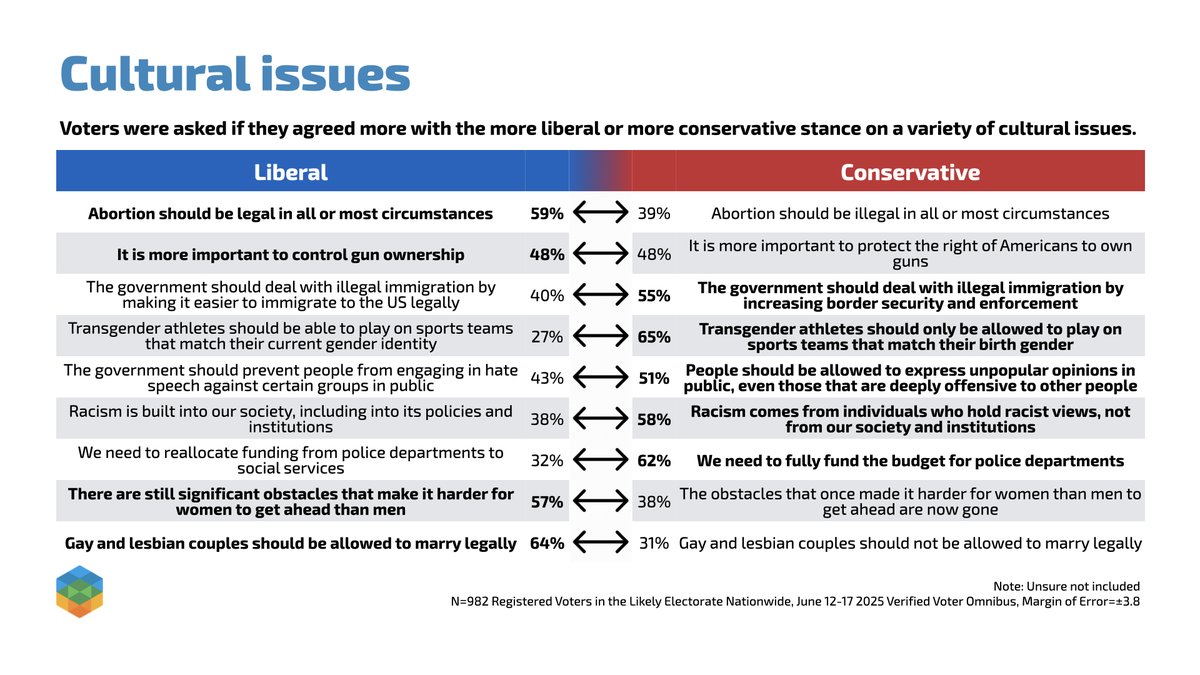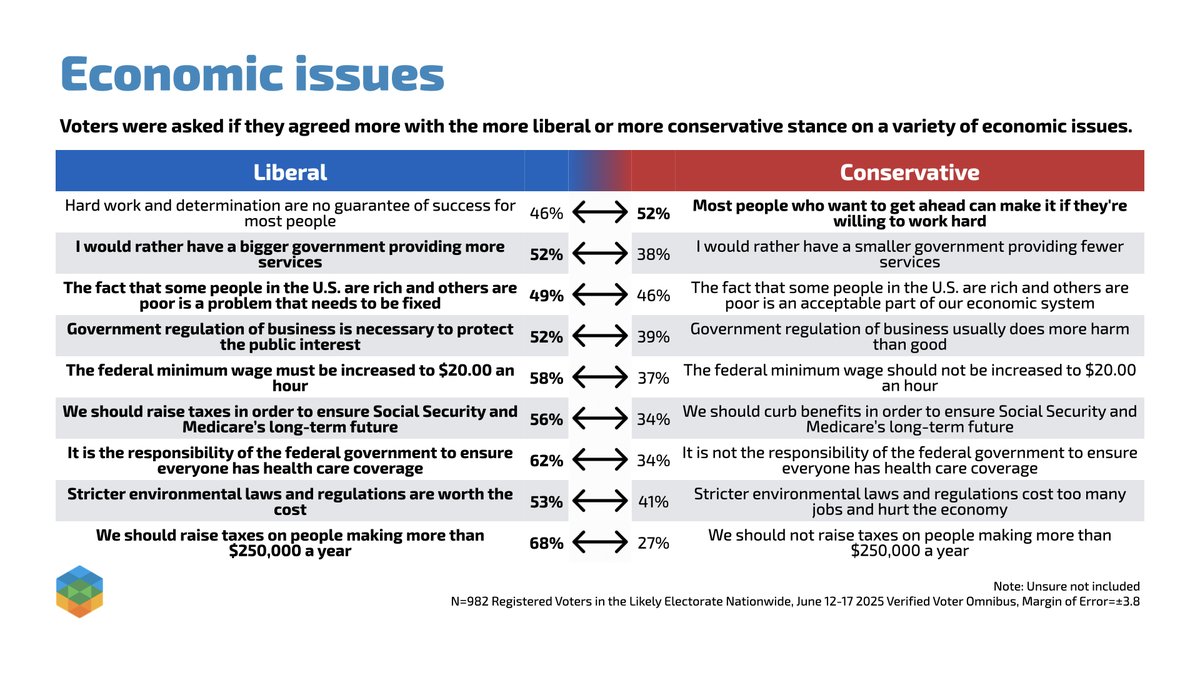For the first time since we started tracking in March of 2020, a plurality of voters are not concerned about getting COVID-19🦠.
New updates on COVID-19 from our May Verified Voter Omnibus: echeloninsights.com/in-the-news/ma…
New updates on COVID-19 from our May Verified Voter Omnibus: echeloninsights.com/in-the-news/ma…

67% of voters now believe the worst part of the pandemic is behind us🌤️ - the highest % since we started tracking in August of 2020. 

Voters are slightly more in favor of reopening🔓, a decrease in hesitancy from last month. 42% now believe that waiting too long to reopen the country will damage the economy and cost job, the highest proportion since May of 2020. 

A majority of Democrats believe that the CDC allowed fully vaccinated people to do all indoor activities without masks😷 too soon, while 44% of Republicans believe that it was long overdue. 

Voters who are already vaccinated💉 are more likely to believe that the CDC loosened requirements too soon. 38% of vaccinated voters believe the CDC acted too soon, compared to 23% of voters who refuse to get vaccinated. 

Voters who have not been vaccinated are more likely to stop wearing masks indoors🏢. Only 35% say they’ll always wear masks while indoors going forward, compared to 49% of vaccinated voters who say the same. 

A majority of Democrats say they will continue to always wear masks while indoors, and a plurality of Democrats say the same for outdoors🏞️. Less than one-third of Republicans say they will always wear masks outdoors and indoors in light of the new CDC decision. 

63% of voters have already gotten the vaccine - up 9 points from last month. Only 18% of voters said they won’t get the vaccine, a 7-point decrease📉 from March. 

Belief that the vaccine was developed too quickly⏩ is the top reason for being reluctant to get vaccinated. Not trusting the vaccine until it’s been in use for several years is tied for the second highest reason, up 13 points from April. 

Voters who are reluctant to get the vaccine trust doctors🩺 or nurses who treated COVID-19 patients and Donald Trump the most if they were to record public service announcements in favor of getting vaccinated. 

• • •
Missing some Tweet in this thread? You can try to
force a refresh





















